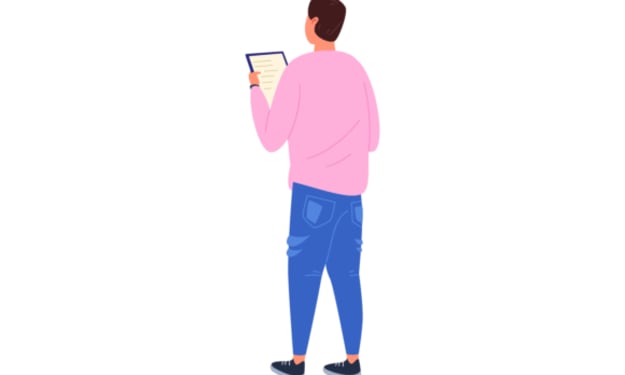Power of habits: building and breaking habits
INTRODUCTION:

Habits shape our behaviors, choices, and our destiny. They are the invisible threads that are made through our daily lives, influencing everything from our productivity and well-being to our personal growth and success. Understanding how habits work and using their power can unlock remarkable transformations in our lives.In this blog post, we will explore the complexes of habit formation, focusing on both building positive habits and breaking unwanted ones. We will unravel the science behind its influence on our actions.
BUILDING HABIT:
Building habits is the process of intentionally adopting and integrating new behaviors into our daily routines. Habits are powerful because they allow us to automate actions, conserve mental energy, and create consistent patterns of behavior. To build a habit, it is essential to understand the habit loop, which consists of three key components: the cue, the routine, and the reward. The cue serves as a trigger that signals the brain to initiate a specific behavior. It can be a specific time of day, a location, an emotional state, or any other stimulus that prompts the habit. The routine is the actual behavior itself, the action we take in response to the cue
cutting of bad habits:
The topic of cutting off bad habits revolves around the process of intentionally breaking free from behaviors that are harmful to our well-being, hinder our progress, or negatively impact our lives. Bad habits can hold us back from reaching our goals, hinder our personal growth, and diminish our overall quality of life. Understanding how to effectively cut off these habits is essential for positive transformation.
Building positive habits:
Building positive habits is the process of intentionally adopting behaviors that contribute to our well-being, personal growth, and overall success. Positive habits have a transformative effect on our lives by enhancing our productivity, improving our physical and mental health, and helping us achieve our goals.
To build positive habits effectively, it is essential to start with a clear understanding of the desired behavior and its according to our goals and values. Setting specific, measurable, achievable, relevant, and time-bound (SMART) goals helps us define the habit and provides a sense of direction. Breaking down the habit into smaller, manageable steps makes it more feasible to include into our daily lives.
It's important to note that building positive habits requires patience, perseverance, and self-compassion. It's normal to encounter obstacles, experience setbacks, or face moments of resistance. However, with a growth mindset and a commitment to self-improvement, we can overcome these challenges and continue on our journey of building positive habits.
Benefits of Building Positive Habits:
Improved Productivity:
Positive habits help us streamline our actions and create efficient routines. By incorporating habits such as time management, prioritization, and focus, we become more productive and accomplish tasks more effectively. These habits enable us to make the most of our time and resources, leading to increased efficiency and output.
Enhanced Well-being:
Positive habits often focus on self-care, health, and well-being. Engaging in regular exercise, maintaining a balanced diet, practicing mindfulness, and getting sufficient sleep are all examples of habits that contribute to our physical and mental well-being. Building and sustaining these habits can result in increased energy levels, improved mood, reduced stress, and a greater overall sense of well-being.
Personal Growth and Development:
Positive habits foster personal growth and development by encouraging continuous learning and self-improvement. Habits such as reading, journaling, setting goals, and seeking new experiences help expand our knowledge, skills, and perspectives. By consistently engaging in these habits, we stimulate personal growth, broaden our horizons, and develop a growth mindset.
Increased Confidence and Self-Esteem:
Building and maintaining positive habits create a sense of accomplishment and self-belief. When we consistently follow through with our habits, we experience a boost in self-confidence and self-esteem. Achieving small wins and meeting our own expectations reinforces a positive self-image and belief in our abilities, which translates into improved confidence in various areas of life.
Stress Reduction:
Positive habits can serve as effective stress management tools. Engaging in habits like exercise, meditation, or practicing relaxation techniques helps reduce stress levels and promote a sense of calm and balance. By incorporating these habits into our routines, we build resilience and develop healthy coping mechanisms to better deal with stressors.
By consciously building positive habits, we empower ourselves to lead healthier, more productive, and more meaningful lives. These habits lay the groundwork for personal growth, well-being, and success, enabling us to thrive in various aspects of life.
The Negative Impact of Unwanted Habits:
Health Issues:
Certain habits, such as smoking, excessive alcohol consumption, poor diet, or a sedentary lifestyle, can have detrimental effects on our physical health. These habits increase the risk of developing chronic conditions like heart disease, obesity, diabetes, respiratory problems, and various other health issues. They can also contribute to a weakened immune system, lower energy levels, and a decreased overall quality of life.
Reduced Productivity:
Unwanted habits often consume time, attention, and energy, which can significantly hamper our productivity. Procrastination, excessive use of social media, or indulging in time-wasting activities can divert our focus and prevent us from accomplishing important tasks. These habits can lead to missed deadlines, decreased efficiency, and a sense of being overwhelmed by unfinished work.

Negative Self-Image:
Unwanted habits can undermine our self-image and self-esteem. Engaging in self-destructive habits or behaviors that go against our values or personal standards can lead to feelings of guilt, shame, and a diminished sense of self-worth. This negative self-perception can further perpetuate the unwanted habits, creating a vicious cycle.
Lack of Personal Freedom:
Unwanted habits can rob us of our sense of personal freedom and control. When habits become ingrained and compulsive, we may feel trapped and powerless to break free from their grip. This loss of autonomy can result in a sense of frustration, helplessness, and a diminished sense of personal agency.
About the Creator
khadija yousaf
i am creative blog writer from pakistan and have much experience in this field






Comments
There are no comments for this story
Be the first to respond and start the conversation.